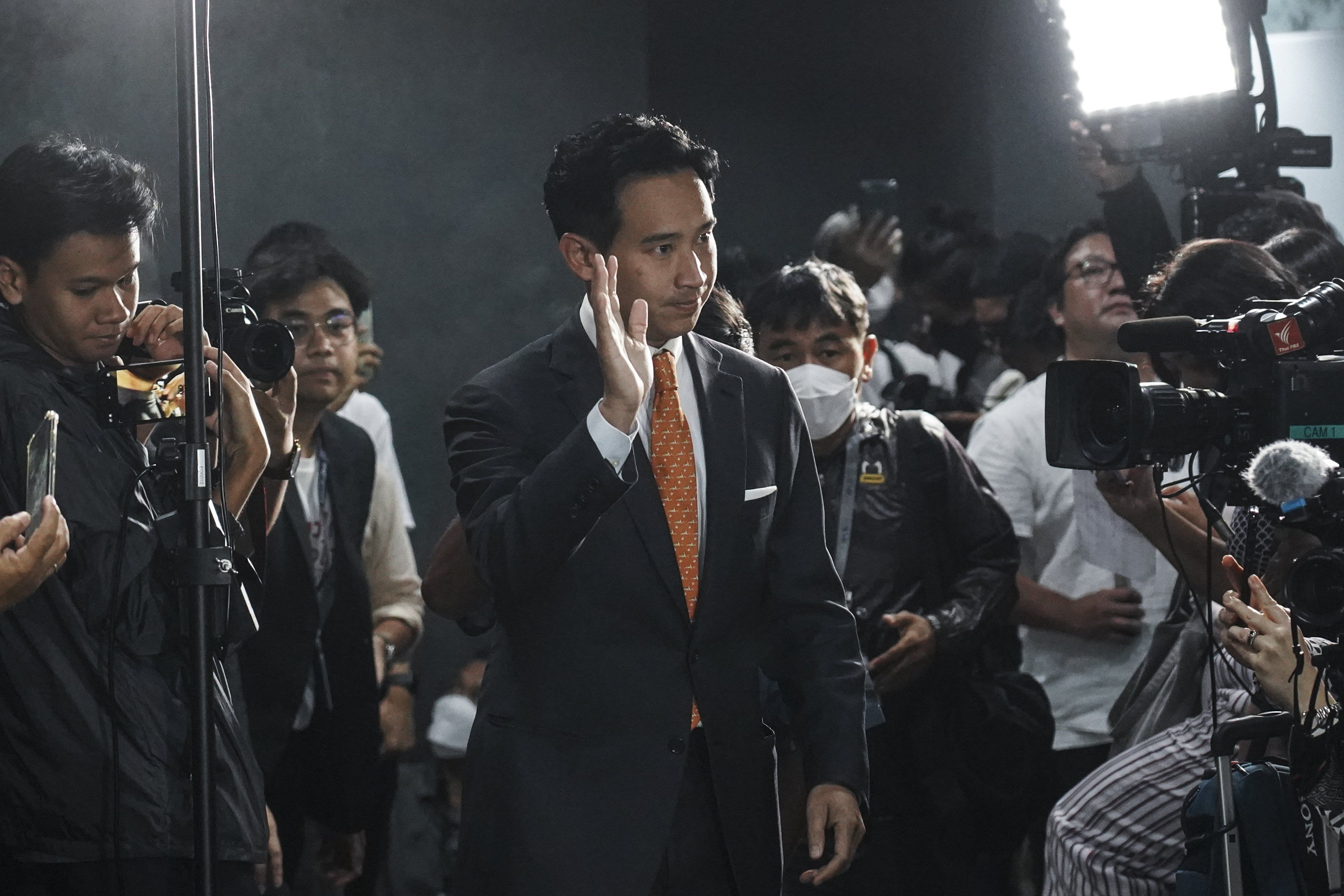On Tuesday, Thai lawmakers are expected to hold a high-stakes parliamentary vote for a new prime minister, the outcome of which could cause prolonged political unrest if the Move Forward Party continues being sidelined from forming the next government, even though it won the election.
Some background: The vote comes after the liberal Move Forward Party surprisingly won the general election in March – thanks largely to huge support from youth and urban voters. But their candidate, Pita Limjaroenrat, was barred from assuming the premiership on the grounds that he was knowingly unfit to run because he owned shares in a media firm, which is forbidden under Thai election rules.
The technicality was seen as a way for the army-backed establishment to hold onto power, and it has deadlocked parliament for weeks.
For a candidate to become prime minister, they need the backing of half of the combined houses. Even though Move Forward has the majority of seats, getting enough votes is looking like an impossible task, especially since the runner-up party, Pheu Thai, withdrew their support for Limjaroenrat and is now backing the conservative, army-backed candidate, the real estate tycoon Srettha Thavisin.
Move Forward won 113 seats in the election, so without forming a coalition with Thavisin’s Pheu Thai Party, it is far from reaching the 376 needed to win the lower house.
If Pheu Thai does prevail, there is likely to be considerable social unrest, especially by the politically active youth who fought to win Move Forward the majority.